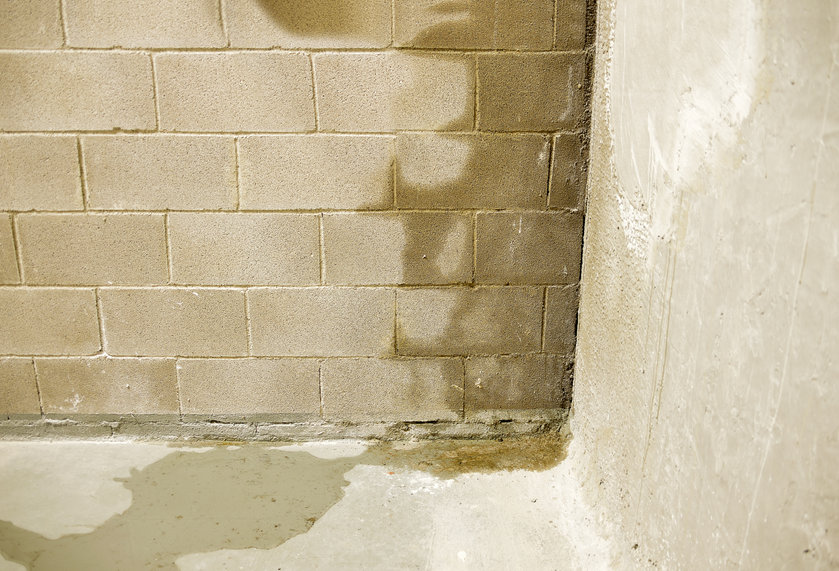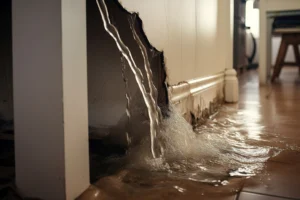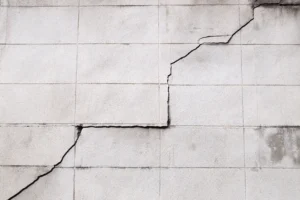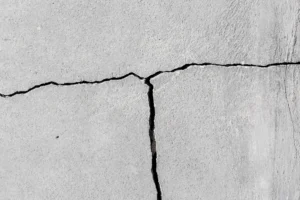Got a wet basement? Basement moisture is not an uncommon problem. In fact, basements are notoriously dark and damp places. Yet however common it may be, moisture in your basement can be bad news. Unfortunately for homeowners, a little bit of moisture can turn into a big problem. From structural damage to toxic mold that is hazardous to your health, basement moisture can cause major issues for your home. So what exactly are the causes of basement moisture? And more importantly, what can you do to fix it?
3 Main Sources of Moisture
Rain or Groundwater
Simply put, this is outside water that makes its way inside.



As little as 1 inch of rain can bring 1,250 gallons of water pouring down onto a 2,000 sq. ft. home. Without proper grading, downspouts, and gutters, that water might find its way into your basement.
Interior Moisture Sources
Sometimes the water in our basements originated or was created there. Such sources can include dryers, showers, cooking, humidifiers, and even the moisture from newly-constructed concrete.
Ventilation with Humid, Outside Air
In warmer weather, we often open our basement windows to help ventilate the space. However, when we let humid, outside air into our cool basements, it can condense on the walls and floors.
4 Common Causes of Basement Moisture and How To Fix Them
Poor Landscape Grading
There’s more to keeping moisture away from the foundation than downspouts, though! Rain and groundwater can end up next to your basement when the grading of your soil points toward your home. It often happens when the fill dirt around your foundation isn’t compacted – as it settles, the slope can change dramatically and in the wrong direction. If the water drains towards your home, it will accumulate against the foundation and eventually make its way inside, either through a crack or by leaching through the concrete.
The ground around your foundation should always slope away from the house, not towards it. You can alter the grading by building up the dirt around your foundation to create a slope of one inch per foot for a minimum of six feet.
Downspouts And Gutters
Downspouts and gutters are necessary for directing rainwater away from your foundation. But if they are blocked, cracked, not far enough away, or missing, rain and snowmelt will find a way to your foundation. The water can build up in the soil as it drains toward your house; chances are, it will find its way inside into your basement.
Clean out and repair any gutters, or install them if none are in place. One downspout should be in place for every 50 feet of the roof eave, and it should extend at least four feet away from the foundation.
Poor Landscape Grading
There’s more to keeping moisture away from the foundation than downspouts, though! Rain and groundwater can end up next to your basement when the grading of your soil points toward your home. It often happens when the fill dirt around your foundation isn’t compacted – as it settles, the slope can change dramatically and in the wrong direction. If the water drains towards your home, it will accumulate against the foundation and eventually make its way inside, either through a crack or by leaching through the concrete.
The ground around your foundation should always slope away from the house, not towards it. You can alter the grading by building up the dirt around your foundation to create a slope of one inch per foot for a minimum of six feet.
Foundation Cracks
Unless they are protected, cracks can form in foundations. Some cracks are the result of poor craftsmanship – for instance, if floor joists don’t connect with the walls, the soil pressure can move the walls, creating weaknesses. Other cracks are the result of poor drainage and water sitting next to the foundation. Excess moisture in the soil can exert hydrostatic pressure on the walls, causing fractures and forcing water through the porous concrete.
We’re Here to Help!
Got a wet basement? Stressed about what to do? We are here to help!
At Dry Master, we have our expert workmen who carry with them years of experience and in-depth knowledge about basement waterproofing. They can easily identify the source of basement moisture and take the necessary precautions to prevent it. We provide guaranteed basement waterproofing services at affordable rates for house owners in and around New Jersey.



